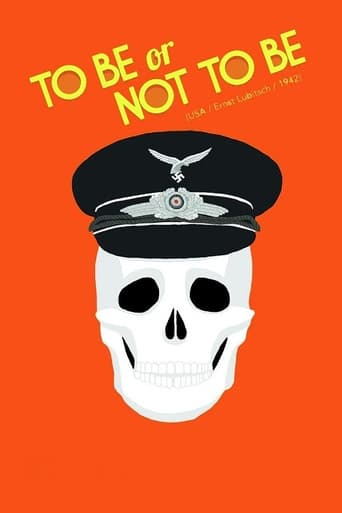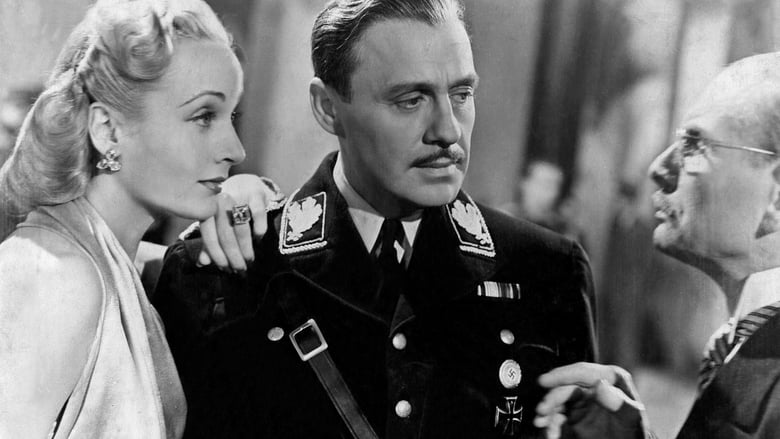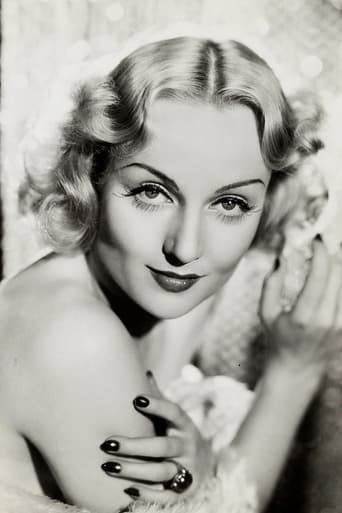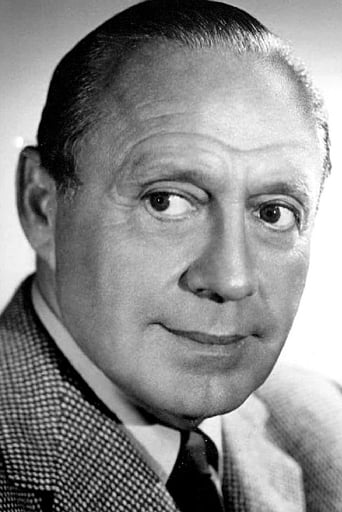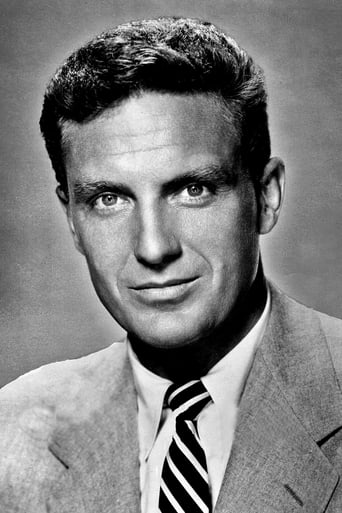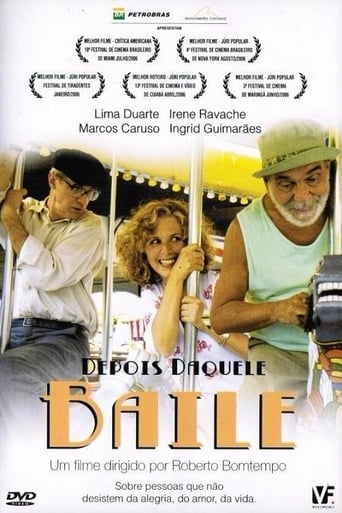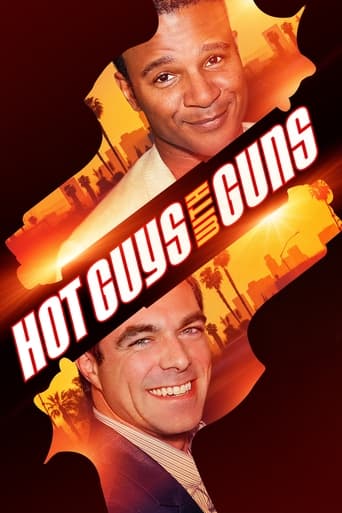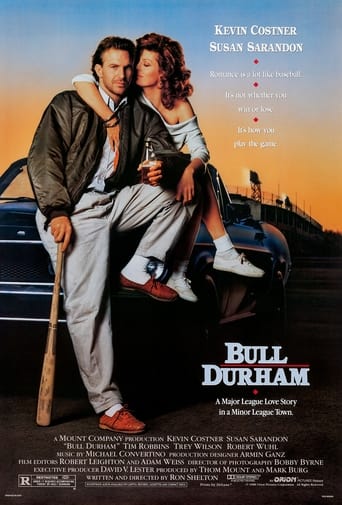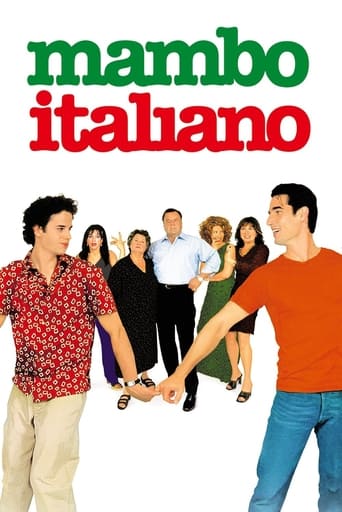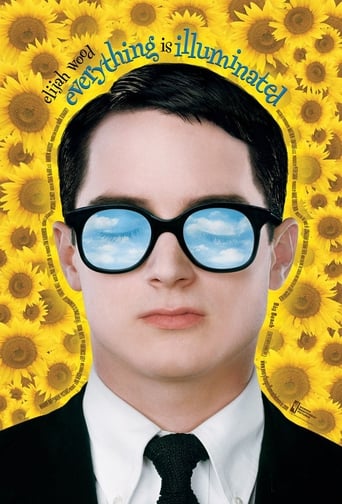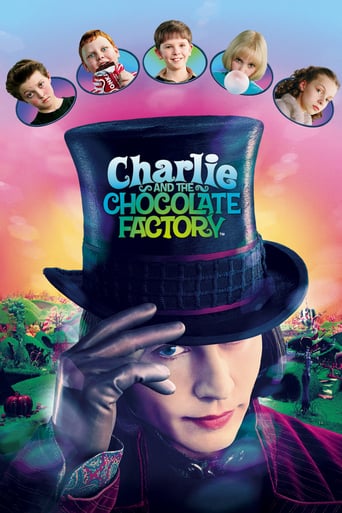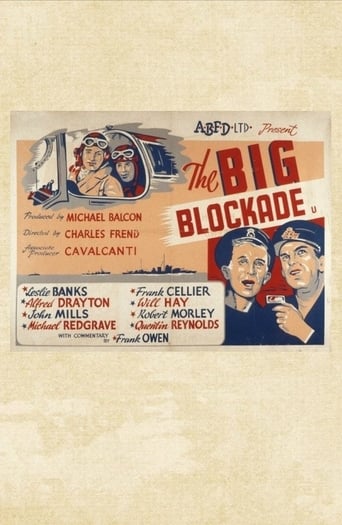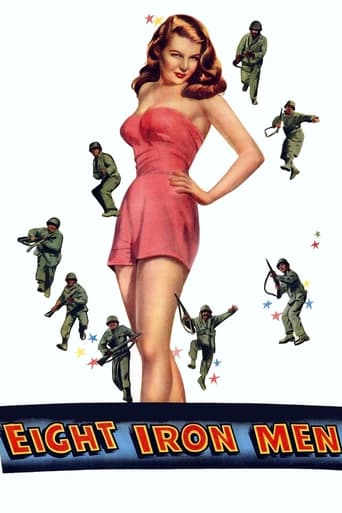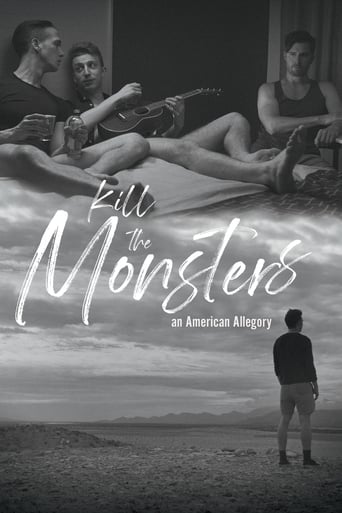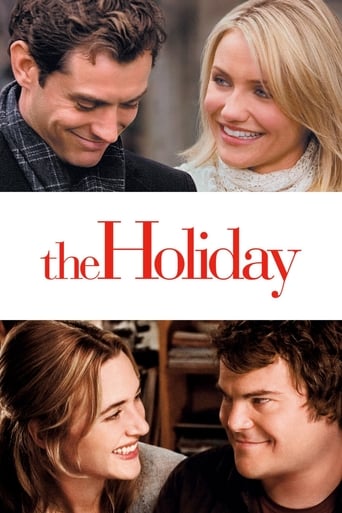To Be or Not to Be (1942)
During the Nazi occupation of Poland, an acting troupe becomes embroiled in a Polish soldier's efforts to track down a German spy.
Watch Trailer
Cast


Similar titles
Reviews
Wonderful Movie
Absolutely Fantastic
I like movies that are aware of what they are selling... without [any] greater aspirations than to make people laugh and that's it.
If the ambition is to provide two hours of instantly forgettable, popcorn-munching escapism, it succeeds.
If you're one of the many who sneer that contemporary comedies play too much on offensive shock value, try this on for size: an American comedy, released only months after the country had shipped troops over to join the war, with the image of Adolf Hitler casually strolling down the street, only moments after his moustached grimace would have graced the screen in the newsreels. Indeed, between the film's brazenly audacious topicality and the horribly tragic pre-release death of its leading lady, it almost boggles the mind to imagine any audiences chancing a viewing of Ernst Lubitsch's To Be or Not To Be, let alone laughing at it. Thankfully, the benefit of hindsight reveals a true classic waiting in the wings. Taking its place alongside Chaplin's The Great Dictator as one of the bravest (and, by proxy, funniest) films of the era, To Be or Not To Be is a savage satire and comedy of errors, wordplay, and mistaken identities worthy of Shakespeare himself, in addition to being a palpably tense and engrossing war film in its own right. If the notion of making an irreverent wartime satire while at once being sincerely deferential to the fears and hardships of the war might seem contradictory, it's a paradox that Lubitsch embraces full steam ahead. The genius of To Be or Not To Be is its being equal parts comedy and war film, vindicating the struggles of overseas troops while employing laughs as cathartic levity from the fear and uncertainty surrounding them. Appropriately, Lubitsch plays the claustrophobic, paralyzing outrage of the encroaching invasion of Poland and the nailbiting suspense of spying within the Nazi ranks to the hilt, while simultaneously lampoons the blustering bureaucratic ineptitude of a Nazi force fumbling to uphold their own doctrines, often side-by-side within the same scene. The film's screenplay is deftly intricate, with enjoyable meta-Shakespearian plays on disguises and mistaken identities seamlessly blending the strains of espionage and comedy. Still, Lubitsch is the master of the 'verbal repetition as punchline' gag, with several slow-burning bits (ranging from initially innocuous lines of dialogue to Benny's hysterically cringeworthy rendition of the titular soliloquy) building from chuckle-worthy to uproariously hilarious in tandem with the film's steadily mounting tension. And, amidst the beats of irreverence and reverence (and moments of shocking, jarring darkness), Lubitsch leaves room for heart. Although the film's 'secret love' subplot between Lombard and Robert Stack's heartthrob pilot plays as a tad histrionic, the clarion sentiment Lubitsch invests into the film's overall agenda is far more resonant. Above all else, the film serves as a galvanizing wartime call to action: a bold parable to the propensity of every citizen to combat oppression, regardless of profession (or even competence). Here, the goofy dysfunctional troupe of actors are held as equally worth of heroic valourization as Stack's matinee idol pilot by being willing to lay down their lives to combat the Nazi uprising. It's an empowering testament to the human spirit that rings true without the artifice of propaganda, and, while lacking the infectiously rousing power of Casablanca's 'La Marseillaise,' Lubitsch's film is equally uplifting, albeit in a quiet and fundamentally sillier way. Carol Lombard's tragically untimely swan song performance is truly one for the ages. Commanding the screen with effortlessly affable ease, she infuses the film's tenser sequences with palpable stakes and tension, while weaving in the reprieve of a mischievous twinkle in her eye to break the ice and invite laughter back into the frame. Jack Benny is similarly magnificent as "that great, great actor, Joseph Tura," being as reliable a repository of laughs in his subtly scathing facial expressions as his perfectly rapid-fire banter and quipping. Stanley Ridges is perfectly smooth riddled with menace as a suave Nazi spy, while the wonderful Sig Ruman blusters and sputters to jubilant perfection as a perennially outwitted Nazi officer. Minor quibbles of pace and tonal balance aside, To Be or Not To Be is a remarkable juggling act, and as enjoyable as it is a triumphant feat of irreverent wartime defiance. Ticking dual boxes of being one of the most resonant and memorable comedies or war films of the Classical era, Lubitsch's film is an eminently revisable time capsule of the best gallows humour of the WWII era. Ah, what the hell - let's do one for the road: "SCHUUUULLLTZ!!!" -9/10
An hilarious satire produced and directed by Ernst Lubitsch from the story by Melchior Lengyel. Werner Heymann received his third of four unrewarded Oscar nominations for his Score; the film was added to the National Film Registry in 1996. #49 on AFI's 100 Funniest Movies list.Jack Benny and Carole Lombard (her last film) star as the leaders of a Polish acting troupe that works to foil the Nazis during World War II in occupied Warsaw. The actors themselves are of the over-the-top variety, so part of the comedy is in the portrayal of the Nazis as buffoons who can be fooled by such "hams", intent on intercepting a spy's information that would damage Poland's resistance movement.Robert Stack plays a Polish officer who is not only part of a love triangle that includes Benny and wife Lombard, but is also the one given the mission to keep the German spy (Stanley Ridges) from delivering his list of resistance members names to the stereotypically brutish German Colonel (Sig Ruman).For patriotic reasons, Benny helps Stack anyway, directing his group of actors (Felix Bressart, Lionel Atwill, Tom Dugan, George Lynn) to play various roles to foil their common foes. Charles Halton (as a theater producer), among others, also appears.
Actors and actresses are remembered for their performances of the great classics, in anglophone culture usually Shakespeare. And yet, as many an actor has said, the only thing harder to do than great tragedy is great comedy.And the only thing harder than that is a convincing mixture of both.And that is what this movie is.There are a lot of Lubitsch comedies that I can watch over and over, especially those he did with Jeannette MacDonald and Maurice Chevalier. It mixes the most serious tragedy with the cleverest comedy, taking you from one to the other flawlessly.There is nothing funny about Felix Bressart's delivery of Shylock's speech; his character has every reason to believe he may be killed by the gestapo. It is deeply moving.Yet there is nothing funnier than when a young man walks out on Joseph Tura's/Jack Benny's "To be or not to be" soliloquy.I've seen this movie several times. I marvel at it every time. It is by turns deeply moving and wonderfully funny. It is, indeed, one wonderful movie.
My first taste of Ernst Lubitsch and one of the greatest films I've seen in a long time. To Be Or Not To Be doesn't waste a moment. It's one of the most impeccably paced films of the 1940s that hits every beat and leads down unpredictable paths. Instantly you can feel the heat of Billy Wilder's admiration for Lubitsch as they share similarities in a simple shooting style, love triangles and sardonic dialogue, and in a way To Be Or Not To Be does it better than Wilder ever managed. It's a battle of egos but they're deeply human underneath, balancing dry humour and tragedy beautifully. This is simply one of the funniest, intelligent and most poignant films of the 1940s. It's got a lot of bite and a lot of character. Lubitsch's brand of satire will be one to watch for me.9/10

